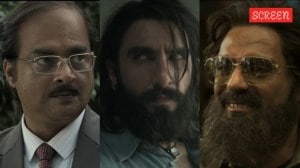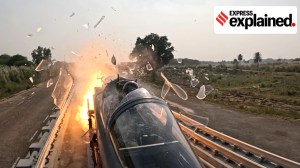Simply just
I can never forget June 12, 1975. It was the usual, hot, summer vacation day in my village.

I can never forget June 12, 1975. It was the usual, hot, summer vacation day in my village. The mid-day bulletin of Akashvani brought news of Justice Sinha’s judgement unseating Indira Gandhi. I noticed, perhaps for the first time, a hint of excitement on my father’s otherwise expressionless face as he explained the significance of the event. By the afternoon, the transistor was reporting the defeat of the Congress in the Gujarat assembly elections held in the wake of the Navnirman movement.
As we waited for our family ritual of dinner with the BBC Hindi bulletin, my village was already discussing India after Indira. Looking back 30 years later, I can see that my initiation in politics began that day. I never got to meet Justice Jagmohan Lal Sinha, but he was certainly one of my early living heroes.
What did that day mean in the biography of Indian politics? It is true but trite to say that it was a glorious day in the history of Indian democracy, for the glory lasted less than two weeks. Indira Gandhi imposed Emergency on the midnight of June 25-26 and most of our democratic institutions did not display an iota of the courage shown by Justice Sinha. It is, of course, easy to hold this judgement responsible for all the political consequences of the Emergency, or to say that it signaled the decline of Congress dominance. But that is not what the judgement was all about. In any case, a careful reading of history will show that the Congress scored some of its most spectacular victories after 1980 and that the long-term decline had begun much earlier.
Perhaps the real significance of Justice Sinha’s judgement was that it conveyed to an ordinary person what ‘rule of law’ meant. This was not the first time that the judiciary was passing an order to the dislike of the political masters. But the act of unseating the prime minister signaled the rise of constitutional institutions as independent actors in our democracy: the Allahabad High Court’s judgment was followed by Justice H.R. Khanna’s celebrated dissent during the Emergency and the less remembered but no less honourable role of the Election Commission during the 1977 elections. This was the precursor to the assertion of institutions like the Election Commission and the judiciary in the 1990s. The consequences of this assertion are yet to unfold fully, but it may be safe to say that the constitutional design of a political executive kept in check by a set of independent institutions was triggered by Justice Sinha’s remarkable judgement.
The most remarkable thing about the judgement was how unremarkable it was as a piece of judicial pronouncement; it was a simple verdict on technical grounds, without any rhetorical flourish. In that Justice Sinha was very much like Justice Khanna, who also passed away recently. Both of them were not known for their erudition or path-breaking interpretations. Nor were they popular for their pro-people activism. They were anything but flamboyant; not for them the highly publicised tongue-lashing at government officials that is becoming common in the courts now-a-days. After retirement they quietly faded from public life. But their honesty and courage of conviction allowed them to stand up when many legal luminaries and activist judges had surrendered.
Tomorrow (March 23) is the anniversary of the end of Emergency, marked every year by the People’s Union for Civil Liberty in the presence of a small group of civil liberty activists. Such a group might use the departure of these two heroes of post-independence India to ask some basic questions about our judiciary: as our judges acquire more and more power, including the unprecedented power to appoint their successors, are more and more judges acquiring the courage of conviction that match their powers? Can the public trust every judge to display the same indifference to power — be it political leaders, film stars or corporate giants — that was displayed by Justices Sinha and Khanna? We need to draw upon their honesty and courage to begin to debate this question in public.
The writer is senior fellow, Centre for the Study of Developing Societies
- 01
- 02
- 03
- 04
- 05































